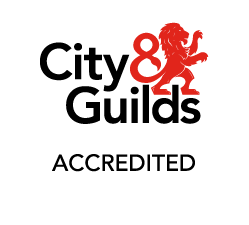Mechanical to Electrical Part 4
Prices Quoted Exclude VAT
Course Type | Electrical, Technical Skills
Certificate | City & Guilds Accreditation Certificate
Duration of Course | 4 Days
Location | Reading or Solihull
Prices Quoted Exclude VAT
Course Type | Electrical, Technical Skills
Certificate | City & Guilds Accreditation Certificate
Duration of Course | 4 Days
Location | Reading or Solihull
Prices Quoted Exclude VAT
Course Type | Electrical, Technical Skills
Certificate | City & Guilds Accreditation Certificate
Duration of Course | 4 Days
Location | Reading or Solihull
About Mechanical to Electrical Part 4
The Mechanical to Electrical – Part 4 builds on the 16 practical competences from the previous 3 parts of MCP’s Mechanical to Electrical Conversion programme. Part 4 continues with fault finding and introduces programmable controllers and thermography.
The Mechanical to Electrical Programme is also available as an on-site, cost-effective alternative to our regular public training courses held at our training centre in Reading.
Is it right for me?
Following some on-job coaching and assessment the delegate is able to carry out basic electrical tasks without the need to wait for an electrical colleague to help him/her out. This course is for technicians who have completed Parts 1, 2 and 3 of the Mechanical to Electrical conversion programme.
What will I learn?
Relevant parts of the Electricity at Work Regulations and IET BS7671
Theory of fault finding techniques
Practical fault finding techniques on pre-prepared rigs and portable electrical equipment; testing to component level
Practical fault finding on control circuits, using digital multi-meters and flowcharts
Introduction to Programmable Controllers
Introduction to Thermal Imaging
Comprehensive review of Parts 1, 2, 3 and 4 in preparation for the final exam paper
The benefits?
Motivation and development of staff
Improved staff retention
Formal targeted training with direction and focused on business need
Encouragement of teamwork through coach and assessor communicating more with opposite trade
Re-focused training budget
SOPs and training packages are written around business need
Improved productivity as downtime is reduced due to increased skills base
Cross-cover of skills in event of absenteeism, sickness etc.
Nationally recognised qualifications where appropriate; skills are validated
Training records meet and exceed those required by HSE etc.





